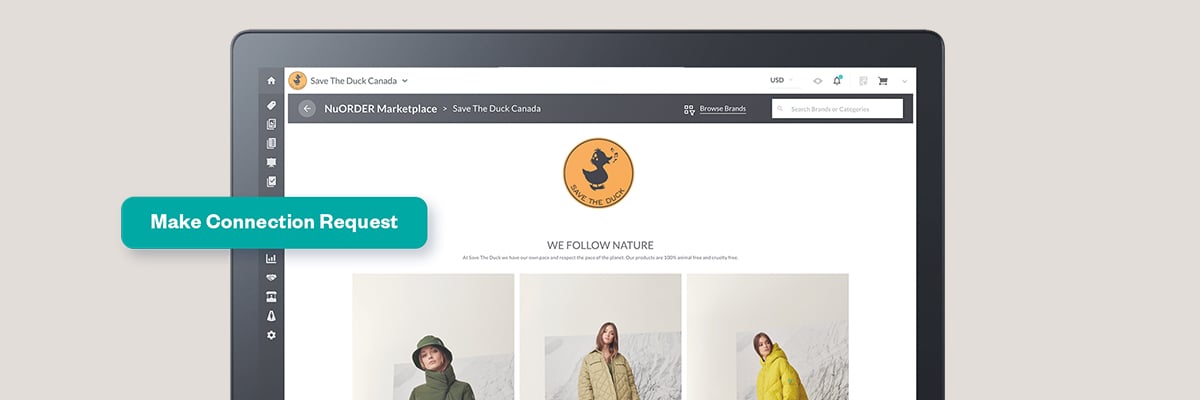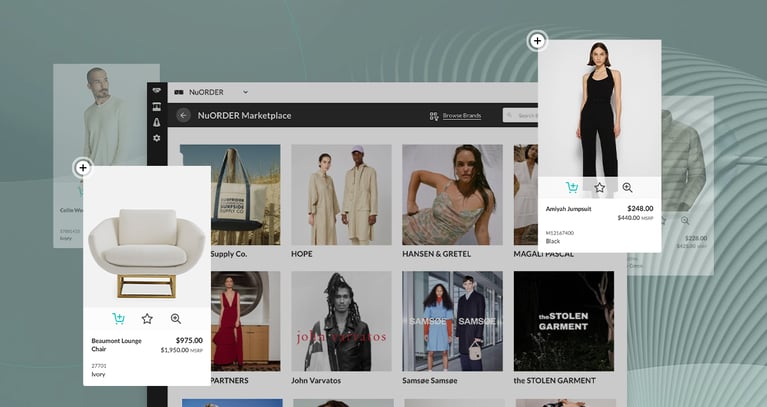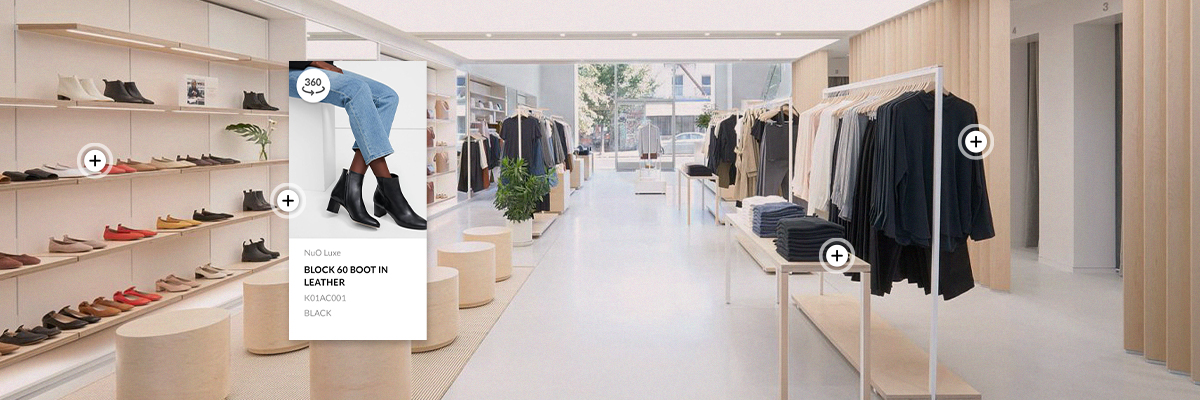Marketplace or B2B platform: What's the difference?
Understand the key differences between marketplaces and B2B platforms so you can make smarter decisions on which option is best for your business.

In this blog, learn key differences between marketplaces and B2B platforms, so you can make more informed decisions on which options are best for your wholesale business.
Developing strategies for converting customers can be challenging for established and emerging brands. Like most brands, you are probably spending tons of money across different platforms trying to hit your sales target. You might even get lost in the differences between all the channels you’re looking to employ for your business’s success.
Key Differences
# 1 Active vs. Passive Prospecting
B2B platforms or B2B ordering systems enable brands to actively invite retailers into their brand portals. You can personalize that experience right from login: you can customize presentations for them, allow them to shop in their local currency, and shop from personalized assortments. On this side, you are building a relationship directly with buyers through active selling and active prospecting.
A marketplace provides an organized space for sellers of many categories and sizes to be discovered by buyers. Here, brands allow retailers to come to their storefront and buy at their wholesale rate. This way of selling your goods is a bit more passive than the former but still serves as an effective channel for buyers to discover your brand.

#2 Brand Focused vs. Product Focused
On a B2B Platform, you build a presentation around your brand and grant buyers access to view and shop your brand on your portal. This gives buyers an opportunity to get invested in your brand by sharing your story, core values, and inspiration behind your collections.
On a marketplace, retailers typically navigate the site via the search function to browse by specific products or categories rather than brand to find what they’re looking for. Though marketplaces allow brands to build and personalize their storefront, a brand's product is surfaced alongside its competitors in a buyer’s search results. Therefore, buying and selling on a marketplace is more product-focused than brand-focused. 
#3 Own Website vs. Feature on third party's Site
Brands use B2B ordering systems to build their own site or virtual showroom to conduct their entire wholesale business allowing retailers to shop in a 24/7 environment where they can see all available products and inventory. These platforms are a one-stop shop that supports all areas of your business including planning, self-service buying, automating your workflows, and immersive product visualization tools like virtual showrooms, 3D renderings, and 360 imagery. B2B platforms provide a myriad of tools to help you sell deeper into existing retail accounts and expand your wholesale business. They invite buyers to experience your brand and your brand only. Here, you can tell a story about how your products are made, show runway footage, and even display a showroom rending where buyers can shop off the rack/shelves. Whereas in a marketplace, you build a profile that is featured on a larger online space where multiple brands are selling. (In this way, it’s more like you’re listing yourself on a sales channel.)

Benefits of Employing Both
It’s important to use both of these tools as they can work in tandem to deliver results for your key business goals. While your B2B platform works to grow and deepen your relationship with current retail partners, your B2B eCommerce marketplace does the job of surfacing your product to attract new retailers.
If you’re looking to expand your selling strategy, download our guide on mastering multi-channel selling here.
NuORDER by Lightspeed's B2B platform gives you the best of both worlds. You can leverage our Marketplace (with over 500,000 buyers) as well as create a wholesale portal that lets you customize every aspect of the buying experience:
- Create a fully branded B2B store
- Set account-specific pricing & discounts
- Send targeted email campaigns with shoppable linesheets
- Integrations with over 100+ ERP, PLM and accounting systems
To learn more about our offerings, talk to our team today.
Related articles
Get on the list
Wholesale tips and industry news you can’t miss, delivered weekly
